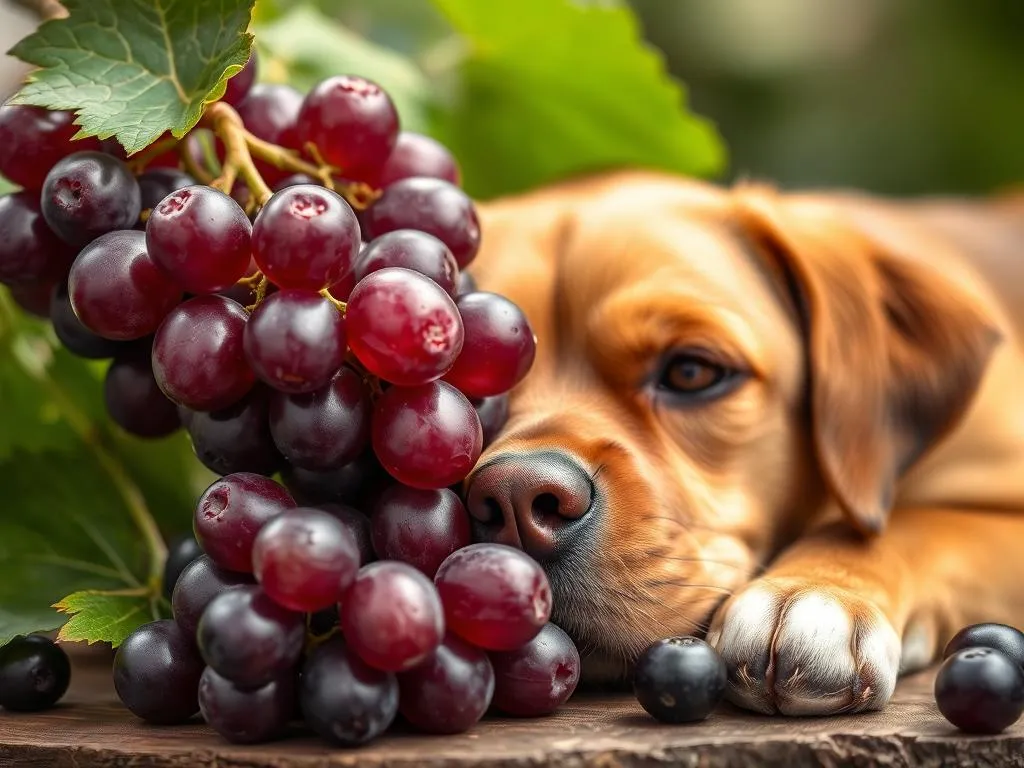
Introduction
As pet owners, we often consider our dogs as part of the family, and we love to share our food with them. However, not all human foods are safe for our furry companions. Understanding food toxicity in dogs is crucial for their health and well-being. In this article, we will delve into one specific topic that raises concern among pet owners: why raisins and grapes are toxic to dogs. By shedding light on this issue, we aim to promote awareness and ensure that our pets remain safe and healthy.
Understanding Dog Toxicity
What is Food Toxicity?
Food toxicity refers to the harmful effects that certain substances can have on animals, including dogs, when ingested. It can result from consuming foods that contain toxic compounds, leading to a variety of health issues. Common signs and symptoms of toxicity in dogs may include vomiting, diarrhea, lethargy, and excessive drooling. The severity of the symptoms often depends on the type and amount of toxic substance ingested.
Common Toxic Foods for Dogs
While some foods may be safe for humans, many are toxic to dogs. Here’s a brief overview of other common toxic foods:
- Chocolate: Contains theobromine, which can be fatal to dogs.
- Onions and Garlic: Can damage red blood cells, leading to anemia.
- Macadamia Nuts: Known to cause weakness and other severe symptoms.
- Avocado: Contains persin, which can be harmful in large quantities.
It’s important for pet owners to be informed about these foods to protect their pets from accidental poisoning.
The Specific Case of Raisins and Grapes
Overview of Raisins and Grapes
Raisins and grapes are common household foods that many people enjoy as snacks. They are often sweet and nutritious for humans, making them a popular treat. However, these seemingly harmless snacks can pose serious dangers for dogs. Many pet owners may not be aware of the risks associated with feeding their dogs raisins or grapes.
Scientific Explanation of Toxicity
The exact compounds in raisins and grapes that make them toxic to dogs are still being researched. However, studies suggest that these fruits can lead to kidney failure in some dogs, even in small amounts. The mechanism of action is not fully understood, but it appears that certain dogs may have an adverse reaction to the chemical compounds present in these fruits.
Ongoing research aims to identify the specific toxins and why some dogs are more susceptible than others. This highlights the importance of being cautious and avoiding these foods altogether.
Symptoms of Raisin and Grape Toxicity
Early Symptoms
Recognizing the early symptoms of raisin and grape toxicity can be critical in helping your dog recover. Some early signs to watch for include:
- Vomiting
- Diarrhea
- Abdominal pain
- Loss of appetite
If you notice any of these symptoms in your dog after they have ingested raisins or grapes, it’s essential to take action promptly.
Severe Symptoms
If the ingestion goes unchecked, more severe symptoms may develop, including:
- Lethargy
- Weakness
- Loss of coordination
- Dehydration
- Abnormal urination or lack of urination
Recognizing these symptoms early can significantly impact the outcome of your dog’s health. If your dog exhibits severe symptoms, immediate veterinary assistance is crucial.
What to Do If Your Dog Ingests Raisins or Grapes
Immediate Actions
If you suspect that your dog has ingested raisins or grapes, the first step is to stay calm. Here are some immediate actions you can take:
- Remove any remaining food: Ensure there are no more raisins or grapes accessible to your dog.
- Monitor your dog: Keep an eye on your pet for any symptoms that may develop.
- Do not induce vomiting: It’s important not to induce vomiting without veterinary guidance, as this can sometimes cause more harm than good.
When to Contact a Veterinarian
Knowing when to contact a veterinarian is vital. You should seek veterinary help if:
- Your dog has consumed raisins or grapes, regardless of the amount.
- They show any signs of distress or illness, such as vomiting or lethargy.
- You are unsure about the situation and want professional advice.
Acting quickly can be the difference between a minor issue and a severe health crisis.
Diagnosis and Treatment
How Veterinarians Diagnose Toxicity
When you bring your dog to the vet after suspected ingestion of raisins or grapes, the veterinarian will begin with a thorough examination. Diagnostic procedures may include:
- Blood tests: To assess kidney function and check for signs of toxicity.
- Urinalysis: To evaluate the dog’s urine for any abnormalities.
- Physical examination: To check for signs of distress or other health issues.
These tests help the veterinarian determine the severity of the situation and the appropriate treatment.
Treatment Options
The treatment for raisin and grape toxicity can vary based on the severity of the case. Common treatment methods may include:
- Induced vomiting: If the ingestion was recent, your veterinarian might induce vomiting to prevent further absorption of toxins.
- Activated charcoal: Administering activated charcoal can help absorb toxins in the gastrointestinal tract.
- Intravenous fluids: To support kidney function and hydration if your dog is showing signs of kidney distress.
Follow-up care is also essential, as monitoring your dog’s health after treatment can help ensure they recover fully.
Prevention and Awareness
Educating Pet Owners
One of the best ways to protect our pets is through education. Being aware of which human foods are harmful can prevent accidental poisoning. Resources such as veterinary advice, pet care websites, and informative articles can provide valuable information to help pet owners make informed decisions.
Safe Alternatives to Raisins and Grapes
If you’re looking for safe fruits and snacks to share with your dog, consider these alternatives:
- Carrots: Crunchy and low in calories, great for dental health.
- Blueberries: Packed with antioxidants and safe for dogs.
- Apples: Remove seeds and core, as apples are safe in moderation.
These options can be great treats while ensuring your dog’s safety and well-being. Additionally, using these safe snacks for training can promote good behavior without risking toxicity.
Conclusion
In conclusion, understanding why raisins and grapes are toxic to dogs is essential for every pet owner. The dangers posed by these common snacks can lead to severe health issues, including kidney failure. By being vigilant and informed about the foods we share with our pets, we can ensure their safety and happiness.
As responsible pet owners, let’s commit to keeping our furry friends safe from harmful substances. Share this vital information with fellow pet owners to promote awareness and protect our beloved companions.









